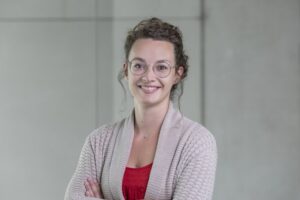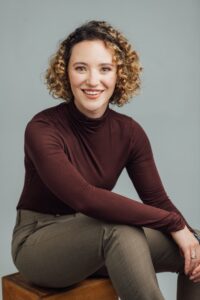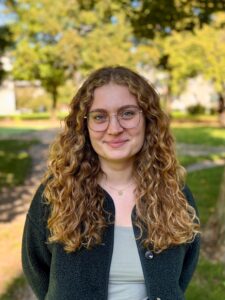BACK TO RESEARCH WITH IMPACT: FNR HIGHLIGHTS
Cancer in adults aged 65+ is increasing, raising pressure on healthcare systems worldwide, creating economic and social burdens for families and society. Older adults have benefitted less from recent developments in cancer diagnosis and treatment than younger people. Researchers are raising awareness of the need for tailored cancer care and research to tackle this health crisis.
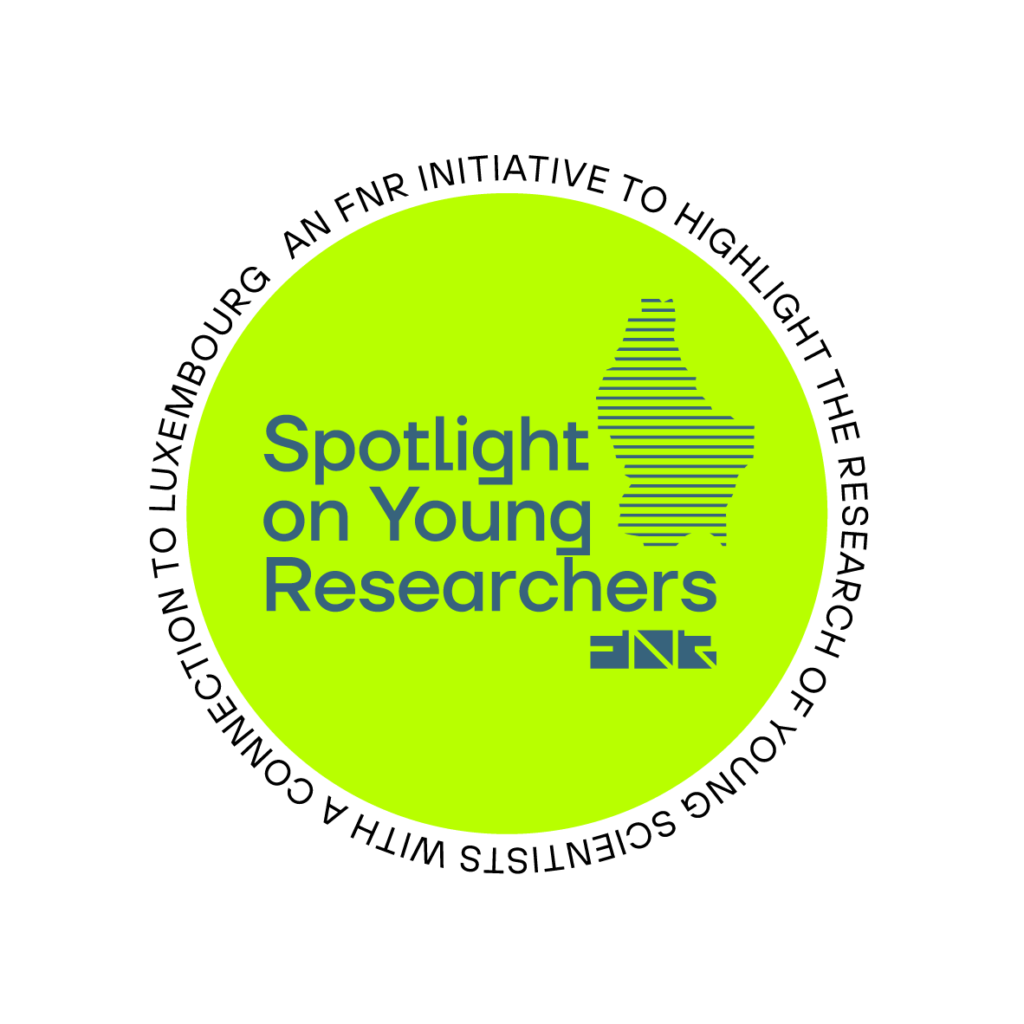
53% of new cancer cases are in older adults – those over the age of 65 made up 62% of global cancer deaths in 2022. As society ages, so will these numbers. There is evidence showing that this age group has not seen the same benefits from progress in cancer diagnosis and treatment as younger patients have, leading to a gap in survival probabilities. Managing cancer in older patients can be complex, making cancer in older adults a growing challenge for healthcare systems, as well as for the economy, families and society overall.

Older cancer patients have unique needs
Research is at the heart of improving outcomes for older patients with cancer, reflected in international efforts and cancer care and research guidelines, for example those developed by the International Society for Geriatric Oncology (SIOG).
“Research has reinforced the evidence that chronological age is a poor proxy for physiological age and highlighted the importance of considering a patient’s frailty status when managing their cancer,” explain researchers in the Ageing, Cancer and Disparities (ACADI) research group at the Luxembourg Institute of Health (LIH).
“It has also shown the effectiveness of comprehensive geriatric assessment and targeted interventions to improve quality of care and quality of life. Additionally, studies have estimated the cancer burden in this population, underscoring the need for specialised support and interventions to address their unique needs.”
From nursing and health psychology to epidemiology and biostatistics
ACADI is a young group, founded in 2023, as part of the FNR ATTRACT Fellowship of Group Leader Dr Sophie Pilleron. It includes Gladys Langue (Nurse and PhD researcher), India Pinker (Psychologist and Postdoc), Clémence Bafei (Epidemiologist and Postdoc), and Pauline Duquenne (Postdoc with background in epidemiology and public health).
“Our diverse team – spanning four countries, two continents – brings unique perspectives, clinical experience, and cross-disciplinary methods to unpack why inequities persist – from nursing and health psychology to epidemiology and biostatistics. We aim to improve outcomes for older adults with cancer.”
The group’s research has highlighted significant gaps in the literature on older adults with cancer. The latest work, published by the European Society of Medical Oncology, has highlighted the limited representation of older adults in European cancer guidelines. Through outreach efforts with local schools, conferences, and invited talks, ACADI contributes to raising awareness of the field’s importance.
“The main challenge is the limited inclusion of older adults in clinical research, particularly in randomised controlled trials, and the lack of geriatric data in existing datasets to properly understand disparities. These gaps reflect a persistent lack of attention to ageing in our societies and the challenges of including older adults in research. Advancing research in this area is essential to reduce disparities and improve cancer care for older adults.”
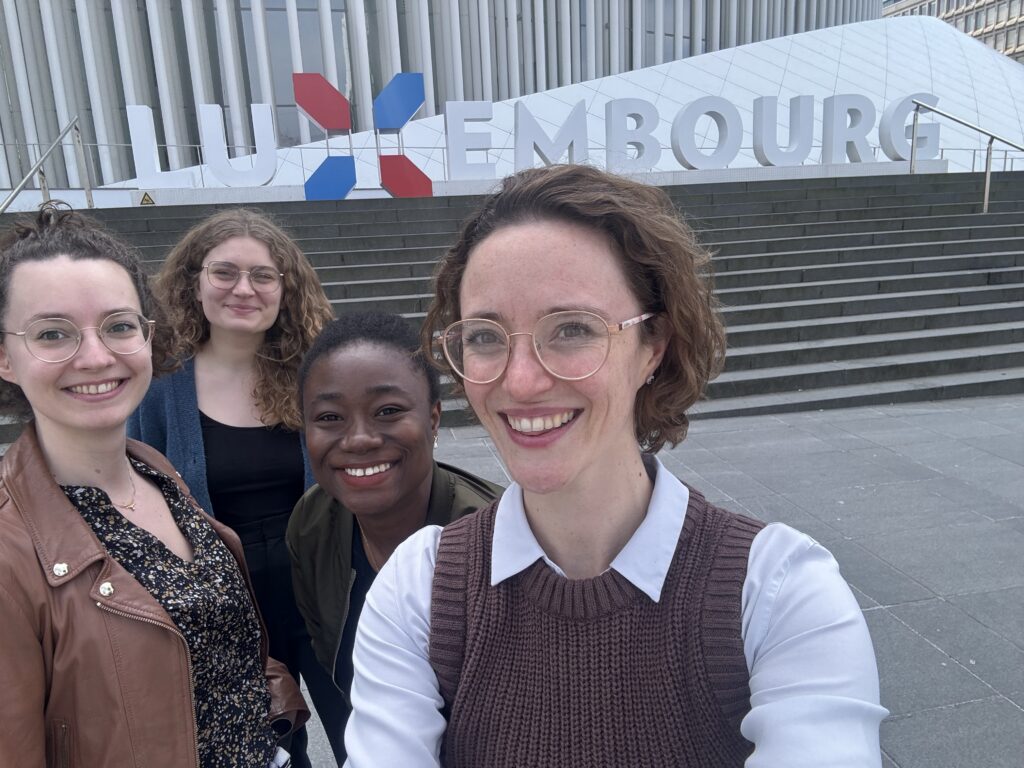
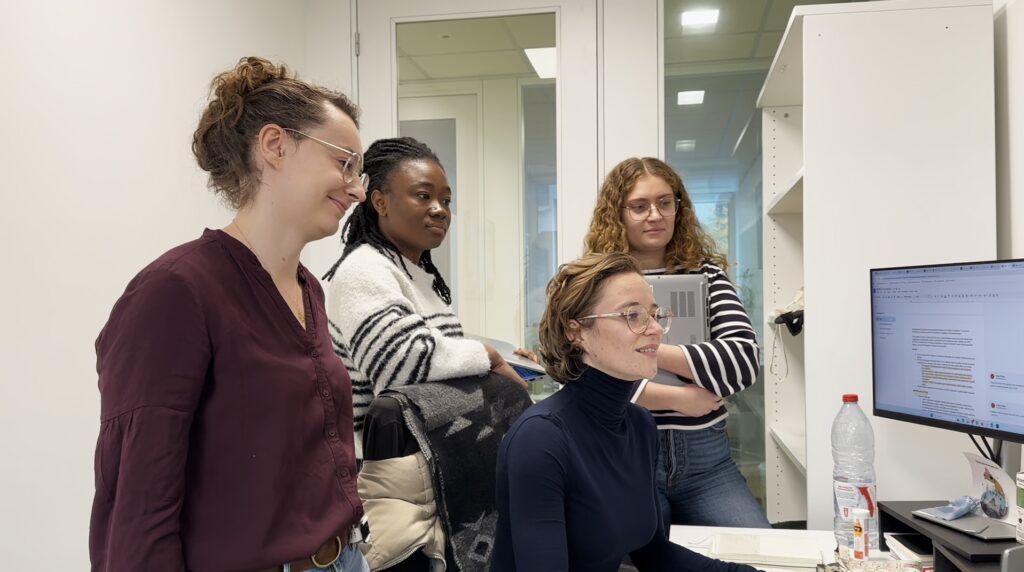
Ageist attitudes: a challenge for progress
The team explains that solutions can be limited by insufficient awareness of the need to tailor cancer care and research for older adults, which can limit funding opportunities and perpetuate a cycle of under-representation.
An additional issue is that medicine is done in silo, and taking care of older adults with cancer requires interdisciplinary collaboration.
“This remains difficult within current healthcare structures and existing workforce limitations. Last but not least, older adults often have complex health profiles, making them even more difficult to study.”
Gladys Langue, India Pinker, Clémence Bafei and Pauline Duquenne are researchers in the Ageing, Cancer and Disparities (ACADI) Research Unit at Luxembourg Institute of Health, created and led by FNR ATTRACT Fellow Dr Sophie Pilleron. Learn more about their individual research focus below.
Gladys Langue, Nurse & PhD Student
What is your main research focus?
“My main focus is to better understand disparities in cancer diagnosis – why older adults are diagnosed at a more advanced stage at diagnosis, and experience more diagnostic delays, compared to middle-aged adults.”
How does your research feed into the challenges the ACADI group is tackling?
“Although it has been demonstrated that older adults experience delays in cancer diagnosis, the mechanisms through which this occurs are not yet well understood. My research aims to contribute to a better understanding of how factors such as frailty, symptomatology that overlaps with other conditions, and the exclusion of older adults from cancer screening programmes may play a role. To this end, I will employ qualitative research methods, including semi-structured interviews, as well as analyse data from European surveys and clinical cohort of older adults. Through this work, I hope to identify critical points that could be addressed by modifying healthcare professionals’ practices or through systemic changes within the healthcare system.”
What drives you as a scientist?
“As a researcher, I am driven by the potential to contribute to the improvement of patient care and to promote greater equity in its delivery. This commitment underpins my particular interest in applied research, where findings can directly inform clinical practice and healthcare system development.”
What do you love about science?
“I greatly value the opportunity to support people worldwide, often reaching beyond what is possible in clinical practice. While clinical work is already highly demanding intellectually, this role adds a different kind of stimulation, requiring constant adaptation and critical thinking. It also encourages humility, as it continually reveals the complexity of the world.”
Where do you see yourself in 5 years?
“In five years, I see myself continuing on my current trajectory, either in a postdoctoral research position or by working in close collaboration with healthcare services to contribute to the ongoing improvement of care quality. Ideally, I would like a hybrid position that combines clinical practice with research.”
India Pinker, Chartered Psychologist & Postdoc
What is your main research focus?
“Exploring how oncologists communicate with older adults with cancer and how this affects treatment decisions.”
How does your research feed into the challenges the ACADI group is tackling?
“Shared decision-making (SDM) is widely studied, yet its implementation with older adults with cancer remains poorly understood, especially in multilingual, multicultural contexts like Luxembourg. With older adults are underrepresented in clinical trials, treatment decisions increasingly rely on personal factors—communication skills, doctor-patient relationship, and cultural influences—rather than robust evidence for this population. Using qualitative research methods, I explore how treatment decision-making occurs locally and how contextual nuances shape it, addressing a gap in understanding. By focusing on these underexplored dynamics, I aim to generate insights that can empower older adults with cancer in their treatment decisions, aligning with emerging trends in personalised, context-sensitive oncology care.”
What drives you as a scientist?
“I entered science to help patients with complex health journeys, motivated by seeing a loved one’s needs go unmet due to poor health communication. This led me to health psychology and medical education to address care disparities.”
What do you love about science?
“I love research for its power to unravel complexity and answer some of our more complex “why” questions in health and care. It is a privilege to learn from voices in these settings and work towards meaningful insights, discoveries, and solutions that can make a real difference.”
Where do you see yourself in 5 years?
“In five years, I hope to lead research designing innovative communication aids for culturally diverse, underrepresented patients and advancing healthcare professionals’ communication skills to improve care experiences for all involved and reduce preventable disparities.”
Clémence Bafei, Epidemiologist & Postdoc
What is your main research focus?
“Improving the evidence base for cancer treatments effectiveness in older adults using causal inference approaches on observational data.”
How does your research feed into the challenges the ACADI group is tackling?
“Older adults are often underrepresented in randomized controlled trials which are the gold standard for evaluating treatment efficacy. When included, older participants tend to be among the healthiest of their age group, limiting the generalizability of findings to the broader older population. As a result, clinicians frequently lack robust, evidence-based guidance for managing cancer in older adults. My research addresses this gap by using secondary data, specifically cancer registries linked to hospitalisation and treatment datasets. I will then apply causal inference methods to reduce biases and produce credible, real-world evidence on the effectiveness of cancer treatment strategies in older adults.”
What drives you as a scientist?
“Through research, I contribute to revealing or confirming trends in health events, identifying populations at risk, and evaluating treatment effectiveness. I help create knowledge and evidence that can benefit society and this sense of being useful is my main motivation as a scientist”
What do you love about science?
“What I love about science is its power to generate evidence and meaningful knowledge that can guide decision-makers, clinicians, and benefit society as a whole.”
Where do you see yourself in 5 years?
“In five years, I see myself as a senior researcher in a research institute or an academic institution, leading projects that address the needs of vulnerable populations.”
Pauline Duquenne, Epidemiologist & Postdoc
What is your main research focus?
“Predicting the risk of early mortality and treatment-related adverse events in older adults with cancer.”
How does your research feed into the challenges the ACADI group is tackling?
“Personalized cancer management is crucial, especially for older adults, as their treatment needs are often distinct due to factors like comorbidities, frailty or polypharmacy. By integrating cancer data, sociodemographic information, and geriatric variables such as falls, cognitive and functional status, predictive models can be developed to simulate and tailor individualized treatment plans. This advanced approach helps healthcare professionals make more informed decisions, optimising treatment strategies and ultimately improving cancer outcomes for older patients.”
What drives you as a scientist?
“I’ve always been drawn to the idea of using scientific knowledge to inform and advance research, particularly in the field of public health. What truly motivates me is the ability to work with data to address real-world questions that have a tangible impact on people’s health.”
What do you love about science?
“What I love about science and research is the opportunity to contribute to solving complex issues through collaboration. It also constantly pushes me to learn new methods, ideas and topics, which keeps me engaged and motivated.”
Where do you see yourself in 5 years?
“At this stage, I see myself continuing in research, with the goal of deepening my expertise in predictive models and data analysis. I’m particularly interested in contributing to interdisciplinary projects that focus on underrepresented populations, such as older adults.”
Related highlights
Spotlight on Young Researchers: Ensuring sustainable water use for Luxembourg
In Luxembourg, nearly one tenth of water consumption happens in agriculture. Changing rainfall patterns and rising irrigation needs during summer…
Read more
Spotlight on Young Researchers – Revisited: From researcher to project manager
When Xianqing Mao was featured in Spotlight on Young Researchers in 2017, she had completed her medical degree and was…
Read more
Spotlight on Young Researchers: Giving robots a more human touch
The use of robots is rising, both in industry and in homes. This is made possible by scientists leveraging artificial…
Read more
Spotlight on Young Researchers: A behavioural science approach to financial misconduct
The rapidly evolving risk landscape financial institutions navigate has brought uncertainty and a risk, making them vulnerable to misconduct and…
Read more
Spotlight on Young Researchers: An eco-friendlier approach to plastics
Polyurethanes (PUs) are widely used plastics, produced in large quantities each year, and found in products like foams, coatings, sporting…
Read more
Spotlight on Young Researchers: Adapting Earth technologies to function on the Moon
Over 50 years after the first Moon landing, interest is growing in returning. What was the case in the 1960s…
Read more
